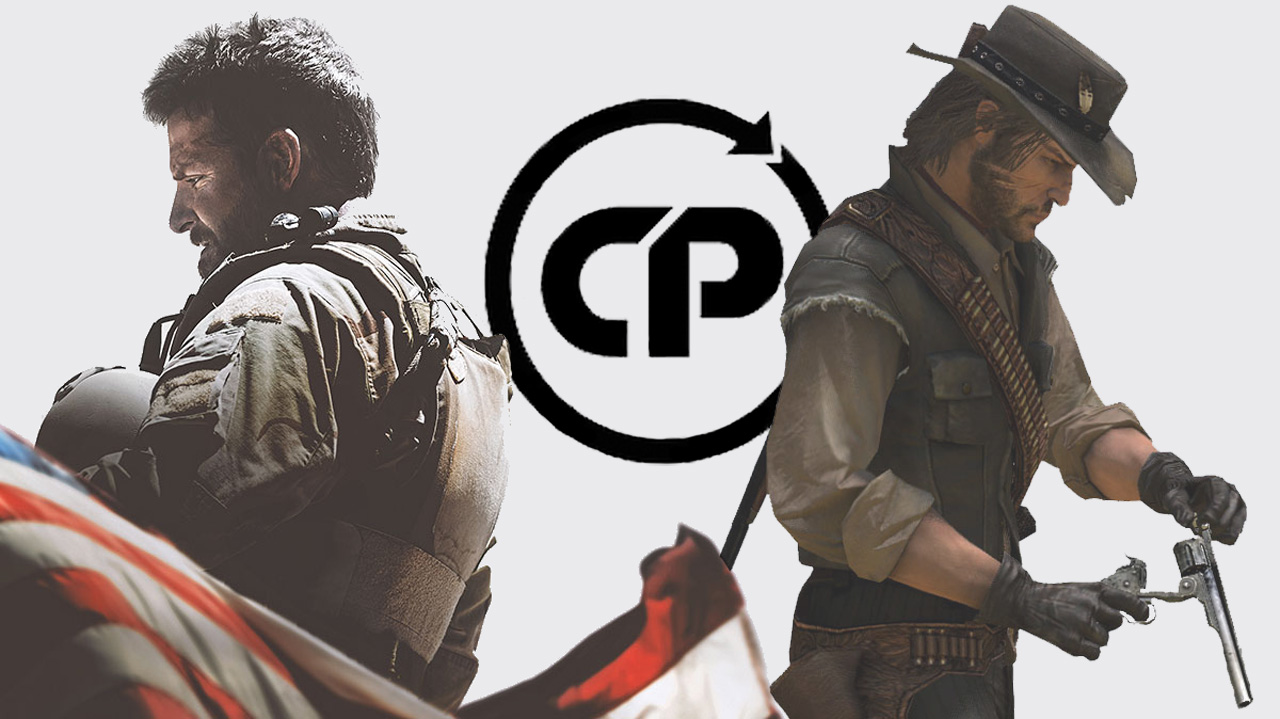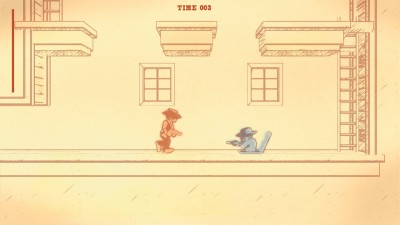[Editor’s note: This piece contains significant spoilers for both Red Dead Redemption and the film American Sniper. Don’t read unless you’ve played, or have no intention of playing, RDR]
Last week, I had the opportunity to watch the latest movie to take America by storm: American Sniper. This film has become somewhat of a phenomenon over the last few weeks, having received six Academy Award nominations, including Best Picture and Best Actor; the Clint Eastwood directed film looks set to take home some hardware.
Admittedly I was a little sceptical going in; American Sniper smelled of jingoism and American propaganda, even if it did look like a well-crafted film. However by the end of the film, there were several things which had impressed me; it wasn’t the editing or sound mixing - both of which are categories it was deservedly nominated for - instead what truly left an impression was the complexity of the questions it was asking of the audience. What does it mean to be a hero in this era of ambiguous modern warfare? It seems to me that the answer lies somewhere between finding your calling and the search for fulfilment in an unfulfilling life. All that being said, this isn’t a review of American Sniper, and I won’t get into whether I thought the film explored these themes to their fullest or not. Instead I’m going to examine the movie through a different lens - comparing American Sniper with a videogame which was released five years ago: one of my favorite pieces of entertainment from any medium in the last decade: Red Dead Redemption.
Red Dead and Sniper are more similar than one might think. At first glance, you could easily point out the superficial, with a quick jump to Clint Eastwood and his western roots – particularly considering Red Dead is set in the action time period and location – for those of you unfamiliar, think Grand Theft Auto in the Wild West, except your character is no longer a bad guy, but a bounty hunter for the Federal Government. Even though both stories are set in vastly different settings and time periods, both main characters were effectively cowboys. This comparison isn’t much of a revelation to those familiar with both Red Dead and Sniper; what struck me was how much these two completely different IPs had in common when it came to their themes, storytelling and character development.
American Sniper features Chris Kyle, a man searching for fulfilment. He’s a rather complex character, without getting into spoiler territory just yet. He is very much the product of his father, and as you see throughout American Sniper he is trying desperately to find closure. He feels an overwhelming need to protect those around him and views his military career as a means to do something meaningful with his life.
In Red Dead Redemption we have John Marston, a former outlaw in the old west trying desperately to settle down with a family. His years of being a cowboy never made him happy, so he ran off with a prostitute to start a family. Finally achieving something near fulfilment, the Federal Government kidnaps his family and holds them to ransom. Like Chris Kyle, John Marston shares an overwhelming need to protect his family, and the only way to get his wife and son back is to hunt down the former members of his old gang. It’s through this that Marston comes to realise that he is trying to find closure, Though Marston didn’t have a choice in the matter, both Chris and John’s journeys take a very similar path.
In both cases, the closure they find comes in the form of a dark, twisted reflection of themselves. It’s through defeating their doppelgänger that they are able to achieve the fulfilment they thought they need, even if it ultimately turns out to be a hollow victory. Chris Kyle spends much of American Sniper trying to find and kill the Syrian sniper known as Mustafa; for Marston the iron sights are pointed at his old friend and fellow outlaw, Bill Williamson. Unlike Marston who had a clear target from the start, Kyle never intended for Mustafa to become the embodiment of his mission - to protect his family and fellow soldiers - but the enemy sniper took on that role during the course of the movie. This all works as a very effective story mechanic: both characters are able to put a face on their search for closure.
When both Marston and Kyle finally achieve their goal of taking out the enemy, Red Dead and Sniper become even more similar. Both men spend their lives fighting to return to their families but when they finally return home they feel ‘out of place’. By no means is this trope exclusive to these two properties - it’s how they use it that makes the trope so important, and it’s the crux of what made the comparison so stark. In most stories piggybacking along these themes, once the protagonist achieves their goal we are usually treated to a few short scenes showing us a happy ending – the guy gets the girl, the girl gets the flowers/pregnant, you get the end credits. Sniper and Red Dead do it differently, and in what is quite simply the most brilliant way.
In Red Dead Redemption, you’ve done as the Federal Government asked; you’ve killed Williamson and in return they have expunged your criminal record. You’ve seemingly paid your debt and return home and spend the next few hours of the game tending to cattle and teaching your son, Jack, how to hunt. As a gameplay mechanic it puts the player in very similar position as the character: you’ve spent probably about 30-40 hours galloping around the entire game shooting outlaws and being an all-out badass, and now you’re told to fetch milk?? Everything feels out of place, and you can’t help but feel that it’s wrong. But it’s these few hours where you as a player you become attached to your wife and son. This is the reward you shot all those people for, and you slowly adjust to home life on the farm. We are treated to a very similar sequence in Sniper, which is understandably condensed considering it’s a movie. It’s arguably less effective because of the time frame, but the point is driven home all the same; we see Kyle adjust to everyday life through the help of his family and community.
Unfortunately, for Marston and Kyle, the comparisons don’t end there. Both men meet their untimely ends as a direct result of the lives they had lived. For John, it’s an old cliché: he was never able escape his past. Even though he spent so much of his later life trying to reconcile his life of crime it ultimately cost him his life in what is one of the most hair-raising scenes from a videogame ever. For Kyle, it was a maladjusted veteran he was trying to help who ended his life, just as his life was finally starting to come together.
I’m not sure if these stories are simply lessons in the consequences of living a life of death and violence or if it’s an exploration of the psyches of men struggling to do something meaningful with their lives. Maybe it’s something else entirely? What I do know is that both American Sniper and Red Dead Redemption explore more complex themes than your average Western or war film, and both come with a massive seal of approval.








